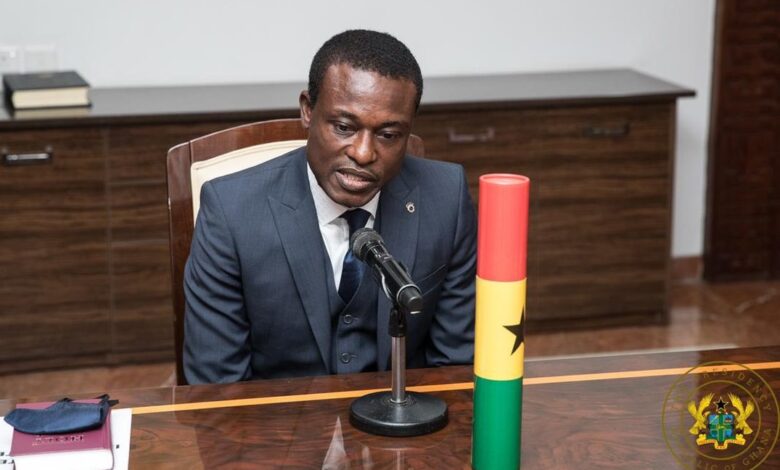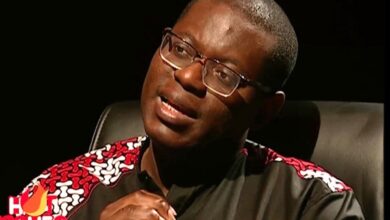OSP Probes MIIF Over Alleged Corruption, Financial Irregularities

The Special Prosecutor, Kissi Agyebeng, has launched an investigation into alleged corruption and financial irregularities within the operations of the Minerals Income Investment Fund (MIIF), a development that could have far-reaching implications for Ghana’s resource management and investor confidence.
Announced at a press briefing in Accra, the investigation will focus on payments, contracts, and projects under MIIF’s portfolio, including high-profile initiatives such as Agyapa Royalties Limited, the Small Scale Mining Incubation Programme (SSMIP), the Quarry Value Addition Programme (QVAP), and key investments like the Lithium Asset Project and the Enchi Gold Project (Gold Asset 2). The inquiry also extends to operational expenses, land acquisitions, and agreements entered into by MIIF.
This scrutiny comes shortly after MIIF issued a public statement denying allegations of financial irregularities reported in the media. The statement sought to reassure stakeholders, emphasizing the Fund’s commitment to transparency and adherence to its mandate of managing Ghana’s mineral revenues responsibly.
MIIF’s Role in Ghana’s Resource-Driven Economy
MIIF, established under the Minerals Income Investment Fund Act, 2018 (Act 978, as amended), serves as a sovereign wealth entity tasked with maximizing mineral royalties and dividend income for long-term national development. With 100% ownership of Agyapa Royalties Limited, Africa’s only state-owned gold royalties company, MIIF has positioned itself as a key player in attracting investments into Ghana’s mining sector.
Through programs like the Small Scale Mining Incubation Programme and the Quarry Value Addition Programme, MIIF seeks to add value to Ghana’s mineral wealth while supporting local enterprises. These initiatives, combined with its strategic investments, aim to foster economic growth and sustainability.
However, allegations of corruption and financial mismanagement have cast a shadow over MIIF’s operations, raising concerns about governance and accountability in the management of Ghana’s mineral wealth.
Impact on the Investor Community
The investigation has triggered unease within the investor community, particularly at a time when Ghana is actively courting foreign and domestic investment in its mining sector. MIIF’s recent denial of financial irregularities was seen as a step toward maintaining investor confidence, but the Special Prosecutor’s probe reopens questions about transparency and governance.
Investors rely on the stability and credibility of institutions like MIIF to ensure that their engagements in Ghana’s mining sector are safeguarded. The allegations under investigation, if substantiated, could impact MIIF’s ability to attract and retain investment, particularly in high-value projects like lithium and gold, which are critical to Ghana’s economic diversification efforts.
The investigation also places the Agyapa Royalties Limited transaction under renewed scrutiny. This controversial deal, designed to monetize Ghana’s future gold royalties, previously faced criticism over transparency concerns and governance issues, prompting widespread public and investor skepticism.
Reassurance and the Path Forward
In light of the probe, industry analysts emphasize the importance of swift and transparent action to address investor concerns. “Maintaining the integrity of institutions like MIIF is crucial to Ghana’s ability to remain competitive in the global mining sector,” noted a market analyst.
For MIIF, the investigation presents an opportunity to reaffirm its commitment to transparency and good governance. By cooperating fully with the Special Prosecutor and addressing any identified gaps, the Fund can rebuild trust and demonstrate its dedication to maximizing Ghana’s mineral wealth for national benefit.
The outcome of the probe will likely influence not only MIIF’s operations but also broader investor perceptions of Ghana’s resource management landscape. For now, stakeholders are watching closely, hoping for clarity and a reaffirmation of accountability in the management of one of the country’s most vital economic sectors.




